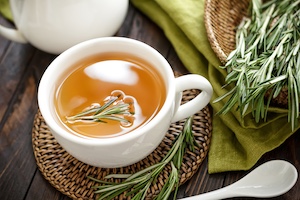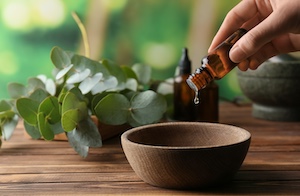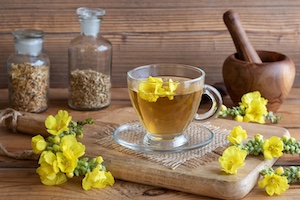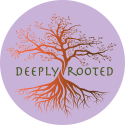Treating Seasonal Allergies with Herbal Medicine
If you’re in Georgia, you know that The Great Pollening is upon us! If not, let me tell you about it.
Each year, the interior southeast is coated with a blanket of yellow pollen. It settles onto every exterior surface, and it is such a nuisance. Have guests over on my patio furniture? Only if they want dusty clothes. Clean my car? Why waste the money and time? It’ll be coated in more pollen by morning.
Aside from being an annoyance, The Great Pollening (not an official name, but it fits) is a reminder that seasonal allergens are all around us. Fatigue, dry eyes, sore throat, and itchy skin are just a few symptoms that seasonal allergy sufferers deal with each year.
Fortunately, there are several herbs that serve as natural antihistamines, anti-inflammatories, expectorants (to get mucus out) and demulcents (to hydrate wear mucus membranes in the respiratory system).
Herbal remedies for seasonal allergies
Eucalyptus helps to relieve congestion and loosen phlegm. It’s an excellent essential oil to diffuse throughout the day. You can also add a few drops to a bath. The essential oil and steam from a hot bath can help release mucus so tat you can breathe easier!
Rosemary, copaiba and tea tree are natural expectorants, helping to get mucus out of your body before it accumulates and causes more problems. All three are available as potent essential oils. You can also use rosemary from your spice cabinet or garden! Simply clip off the needles and place them in a bowl of steaming water. You can cover your head with a towel and take deep breaths of the vapor. Alternatively, you can drink rosemary tea.
Stinging nettles and mullein are natural antihistamines with anti-inflammatory properties. Both reduce sneezing and itching in folks with hay fever. By reducing inflammation, mucus can more easily exit the nose rather than causing congestion. By reducing internal inflammation, you will also look less puffy and red throughout the day.
Cleavers help drain unwanted fluids from your head and neck. It’s also anti-inflammatory, which reduces puffiness.
Single or combined, nettles, mullein and cleavers make an earthy and pleasant cup of tea. They’re most potent as tinctures, though.
What herbal preparation is right for you?
An herbal tea is going to be the most accessible option for most herbs. This is because the herbs are food-grade dosages that most people tolerate without issue (unless you’re allergic). Rosemary, Nettles, mullein and cleavers can be consumed.
A tincture is more potent than a tea, and is also taken orally. I recommend speaking with an herbalist before supplementing your regimen with tinctures.
Essential oils are equally potent. Some, such as rosemary, can be taken internally. What makes essential oils unique is that they can be diffused as aromatherapy. There are several ways to diffuse essential oils, but ultrasonic diffusers are quite common and easy to use. 6-9 drops of an essential oil in a 200ml diffuser will offer hours of relief! Speak with an herbalist about the best dilution ratios of essential oils, as children, seniors, and other vulnerable parties need less than you may think to be effective.
Herbal bath salts are amazing because they offer the best of two worlds: topical (on skin) application and aromatherapy! A soak in fresh herbs and essential oils offers numerous benefits. Not all essential oils are safe for sensitive regions, so consult an herbalist before hopping in the tub.
Get herbal medicine for seasonal allergies all in these great blends!





